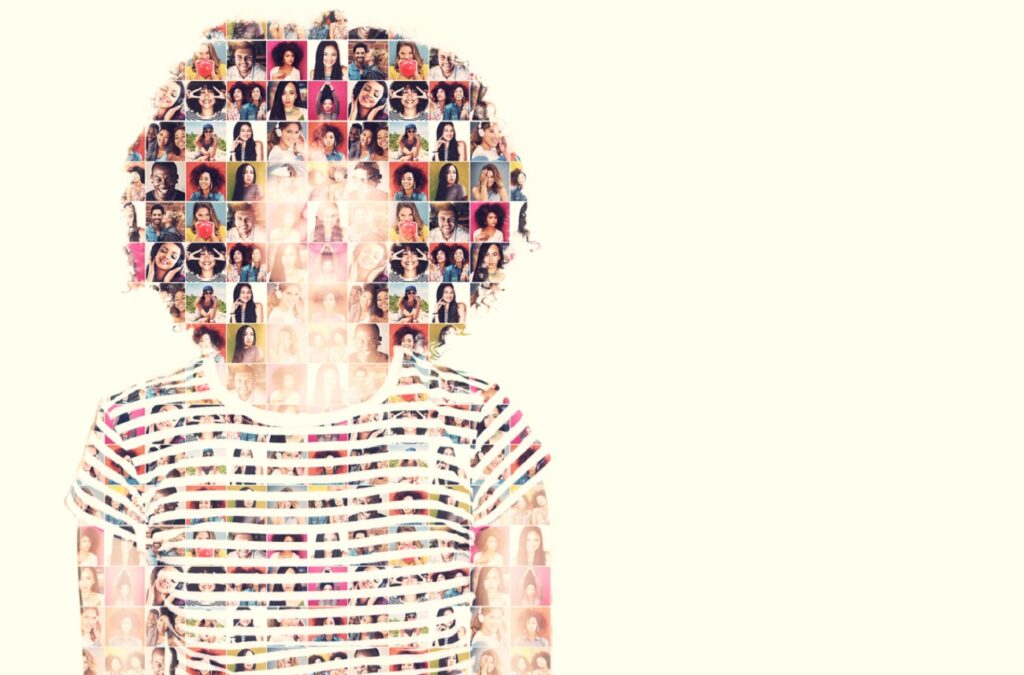When it comes to truly embracing diversity, one of the first and most stubborn of obstacles is our own bias. If you have a brain, you are biased. It’s an uncomfortable truth: our brains lead us to bias.
They are brilliant in many ways but we are confronted with tens of thousands of decisions every day and we cannot possibly consciously think through each and every decision. Our brains take most decisions without us even being aware of the process.
To enable them to make all these decisions without much effort, our brains take shortcuts and, on the whole, these shortcuts are useful.
They enable our brains to be efficient problem-solvers, saving us from having to think through the pros and cons of every decision and freeing up thinking space for us to deal with ‘bigger’ issues.
Shortcuts save mental energy and the brain likes that: it likes to be lazy.
Friend or foe?
Shortcuts are expedient but they also lead to flawed thinking, and this includes when we are thinking about other people. Our brains have not changed that much since we were out on the savannah.
On the savannah it was a useful shortcut to think that, on the whole, people who are in my tribe are ok, but people who are from another tribe might be a threat to me; they might want to take my food, my shelter, my family. ‘Friend or foe?’, our brains subconsciously question each time we meet people.
Are they like me or are they not like me? Ingroup or outgroup? Within fractions of a second, our brains are judging other people. We are all both victims and perpetrators of this.
Knowing that bias is a consequence of how our brains work might make it easier for each of us to accept ourselves: “It’s not me, it’s the way my brain works”. While the inevitability of bias may help us to feel less guilty, there is no room for complacency.
The challenge of diversity
Diversity comes in many different forms: people differ due to gender, parental and marital status, age, academic ability, culture, part-time or full time working, political views, to name just a few. It is becoming generally accepted that there are significant differences in how different cultures process information and see the world.
Readers will be familiar with the concept that diverse teams tend to have broader perspectives and bring differing thoughts which in turn can lead to greater creativity. Diversity and inclusion are good for innovation, business, and for society. It also just feels morally and inherently right to embrace diversity.
Diversity disrupts assumptions and sharpens up our thinking
Studies reveal that in addition to creativity, being part of a diverse team is beneficial for us in other ways. Look around you in the workplace.
Are most of your colleagues a bit like you? Are members of your team from a similar background? On the whole, do you feel very comfortable with your colleagues? Do you have similar attitudes? Have you come through a similar education system? If the answer to some or most of these questions tends to be a ‘yes’ then this level of similarity could be leading you into sloppy thinking.
Research studies show that when we are working with people whom we feel are pretty much like us, our thinking tends to get lazy and we process information in a more superficial way.
Diverse teams can feel less comfortable to work in but this lack of comfort can have a positive impact on the quality of our thinking. Research conducted by Levine et al in 2014 tested the performance of traders who were doing business with people either from the same ethnic background or from different ethnic backgrounds.
The researchers found that those people who traded with people from the same ethnic background were overly trusting, made more errors and created a price bubble. In a diverse market, traders were more likely to examine and analyse others’ behaviour and were less likely to think others’ decisions were sensible.
They were more likely to consider information with greater care and depth. In this case, ethnic diversity was beneficial not because people brought different views, but because the very presence of someone from a different background affected people’s thinking.
Working in a diverse group interrupts another of our brain’s shortcuts where we tend to unthinkingly behave as others do (a shortcut often referred to as ‘social proof’). Working with people who are different from us disrupts some of our assumptions.
It reduces ‘group think’ and sharpens up our thinking. Research by Sommers (2006) shows that ethnically diverse juries consider a wider range of views, discuss for longer and make fewer inaccurate statements than homogenous juries. Diversity is not just good for those who are typically in the minorities, it improves the depth of thinking of all of us. Diversity benefits everyone, minorities and majority alike.
Bias – self-control is not the answer
But the fact that our brains are constantly taking decisions without us even being aware of them also means that there are limits on what we can do to prevent bias. It’s all very well going on the unconscious bias training course, but the next time that we are a bit tired, a bit stressed or a bit short of time we will slip back into our biases. Self-control is not the answer.
What is? The first step is to accept that we are biased and prone to shortcuts. It’s what our brains do. There are many subsequent steps we can take to help reduce bias and improve inclusiveness. We need to put processes in place in the organisation.
Here are just four:
- Appoint a devil’s advocate. Appointing a person whose role it is in each meeting to challenge lazy or biased thinking.
- Diverse groups should be given more time to allow members to familiarise themselves with each others’ perspectives and expertise. Group leaders need to able create an environment of open and trusting conversation.
- Priming ourselves: reminding ourselves at the beginning of meetings of our values, the criteria against which we want to make a decisions; giving everyone the language and confidence to call out biased thinking.
- Remind people: diversity makes us all brighter.
Levine, S S et al (2014) Ethnic diversity deflates price bubbles, Proceedings of the National Academy of Sciences of the United States of America Vol 111, No 52 pp18524-18529
Sommers, S R, (2006) On racial diversity and group decision-making: identifying multiple effects of racial composition on jury deliberations. Journal of Personality and Social Psychology Vol 90, No 4: pp597-612






